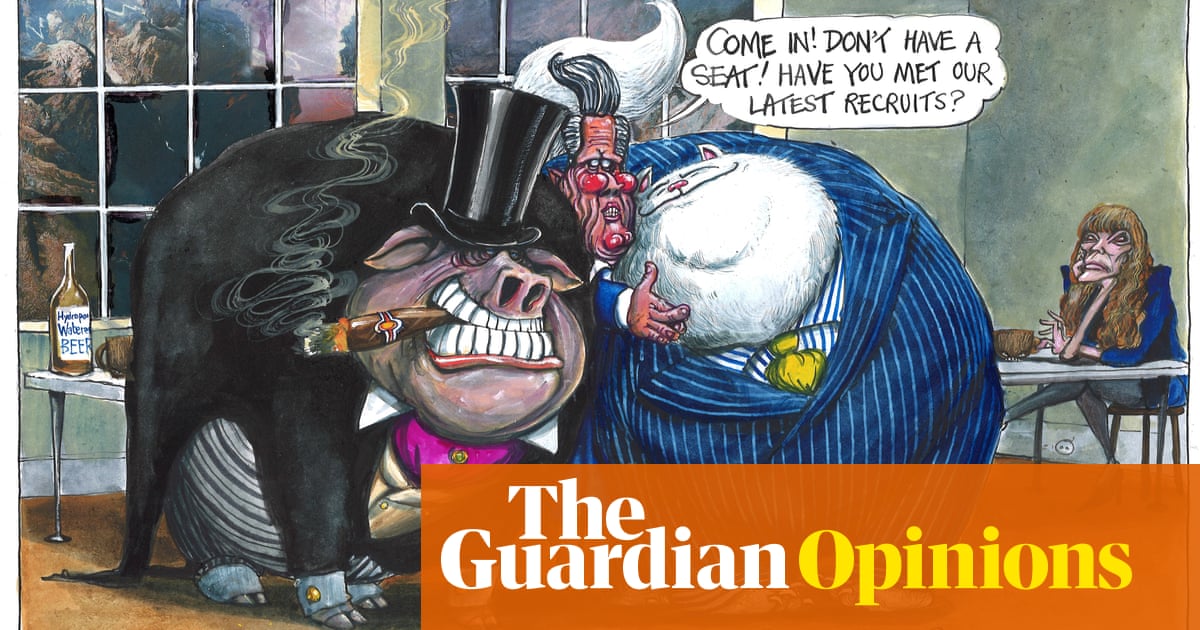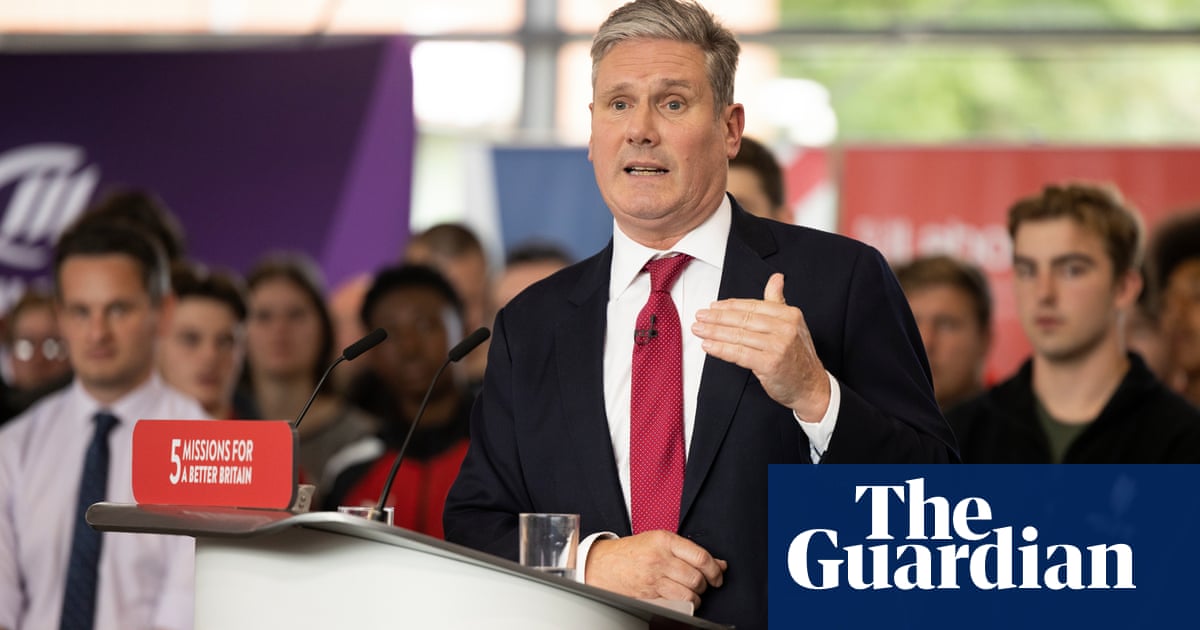
ext week, our Conservative government is set to ask profitable companies to contribute more tax. It will do so in the face of fierce Labour opposition. By opposing an increase in corporation tax – the lowest of the major G7 economies – and a windfall tax on companies that have profited from the crisis, Labour has placed itself firmly to the right of Rishi Sunak. It is on a collision course, too, with public opinion: 67% back a rise in corporation tax, and support is unsurprisingly even more decisive among Labour voters. It is strikingly to the right of Joe Biden’s administration, which plans to raise corporation tax to 28%. Even business leaders themselves are “largely relaxed” about a corporation tax rise, according to the Financial Times.
Labour’s opposition to tax increases is yet another illustration of an increasingly obvious truth: the party’s leadership lacks a political soul and is devoid of any meaningful coherent vision for the country it seeks to lead. Keir Starmer’s allies make the case that their defence of corporate Britain is simply Keynesian – taxes should not rise in a recession – and that his promises during the leadership campaign to increase taxes on big business and the affluent remain intact.
This argument is as weak as it is disingenuous. The shadow foreign secretary, Lisa Nandy, suggested that paying increased corporation tax could mean businesses “going under”, apparently unaware that it is only levied on profits and therefore struggling businesses are exempt. Indeed, the evidence is that raising corporation tax could lead to a more balanced and sustainable recovery, while stopping inequality from escalating. Labour isn’t even making a persuasive case for future tax rises once the economy is back on its feet. But this isn’t about economics, it’s about politics – Starmer’s aides are making clear to increasingly exasperated shadow ministers that this is about challenging Labour’s reputation as the party of tax rises.
The problem is that this strategy is failing, even on its own terms. Labour is stuck in a 2015 time warp, while the public have moved on. As shadow ministers point out, the public expect taxes to rise to help stimulate the UK’s post-pandemic recovery, so the opposition needs to be clear now about who will be asked to contribute more and by how much. Even before the pandemic, public attitudes on taxation and spending had dramatically shifted. Back in 2009, just 30% believed that deficit reduction should come through higher taxes – that’s now 47%.
The Tories have picked up on the public mood, so why hasn’t Labour? Starmer’s team believes the party must be cleansed of its false reputation for overspending in the run-up to the 2008 crash, but last year only a quarter of people blamed the Labour party for causing austerity. Public opinion shifted dramatically – in part, because Jeremy Corbyn’s Labour party was prepared to make coherent arguments against austerity and in favour of fairer taxation and spending on public services. If it widened the Overton window – that is, the realm of political possibility – Starmer’s team now seems determined to slam it shut.
This lack of ambition speaks to a wider problem in the leadership team. Starmer’s head of policy, Claire Ainsley, is widely blamed for blocking attempts to oppose Tory policies and strategy. This is largely due to the disproportionate attention given to the views of voters who defected to the Conservatives in 2019, as revealed in focus groups conducted by the party.
A near-cliche view in focus groups is an aversion to “playing politics”. It’s likely that the Tories heard the same thing during the 2008 financial crash, but they nonetheless persevered in pushing a narrative of Labour overspending. Rather than simply repeating what the focus groups told them, they made the political weather. Labour has failed to communicate the government’s disastrous handling of the pandemic, and consequently allowed it to get away with it.
Political direction is coming from the focus groups because Starmer’s team lacks a political vision to guide them. They desperately want to win power, but they don’t know why. Last week Starmer delivered a speech about inequality with laudable lines, not least arguing that closing the gap in income and wealth was inextricably tied to prosperity for all. But the signature policy floated, the “British recovery bond”, failed on two counts. It was technical rather than totemic, failing to tell a story of what Starmer’s Britain could look like. And it fell short of helping those who need support most – favouring middle-class savers rather than those struggling with lost income and debt.
Even in the late 90s, New Labour offered modest but important reforms – like the minimum wage, a windfall tax on privatised utilities, devolution and gay rights – which the Tories opposed. Boris Johnson’s Conservatives will happily appropriate any mild tinkering proposed by Labour, and without actual progressive policies it is impossible for Labour to offer a distinct political prospectus. The most comprehensive study of the 2019 election calamity concluded Labour must not abandon its economic radicalism – but it has been completely ignored.
A savvy leadership team would debate what progressive and popular policies could be salvaged from the Corbyn era. If Starmer’s predecessor was seen as a legitimate leader then there would be an attempt to learn from the 2017 election: about why Labour lost, but also why it attracted its biggest voter surge since 1945 and its highest vote share since 2001. At the time, even Corbyn’s most bitter opponents among the parliamentary Labour party agreed the policies had played a key role. But it has been decided that this period must be expunged from Labour’s history.
This isn’t the 1990s, an era of growth driven by an unsustainable financial bubble, when “third way” politics dominated on both sides of the Atlantic. In today’s crisis-stricken era, centre-left governments – from Spain to the US – have gained power by striking some form of accommodation with the left. This is not a lesson Starmer’s team seems interested in. At a time when existing inequalities have been revealed, and the country risks long-term scarring from the impact of the pandemic, there is a common consensus that far-reaching change is needed. Instead, the Labour leadership seeks power without a vision. That is, to be fair, an interesting political experiment, but one that is unlikely to end well. It is not too late to change course.
Owen Jones is a Guardian columnist












